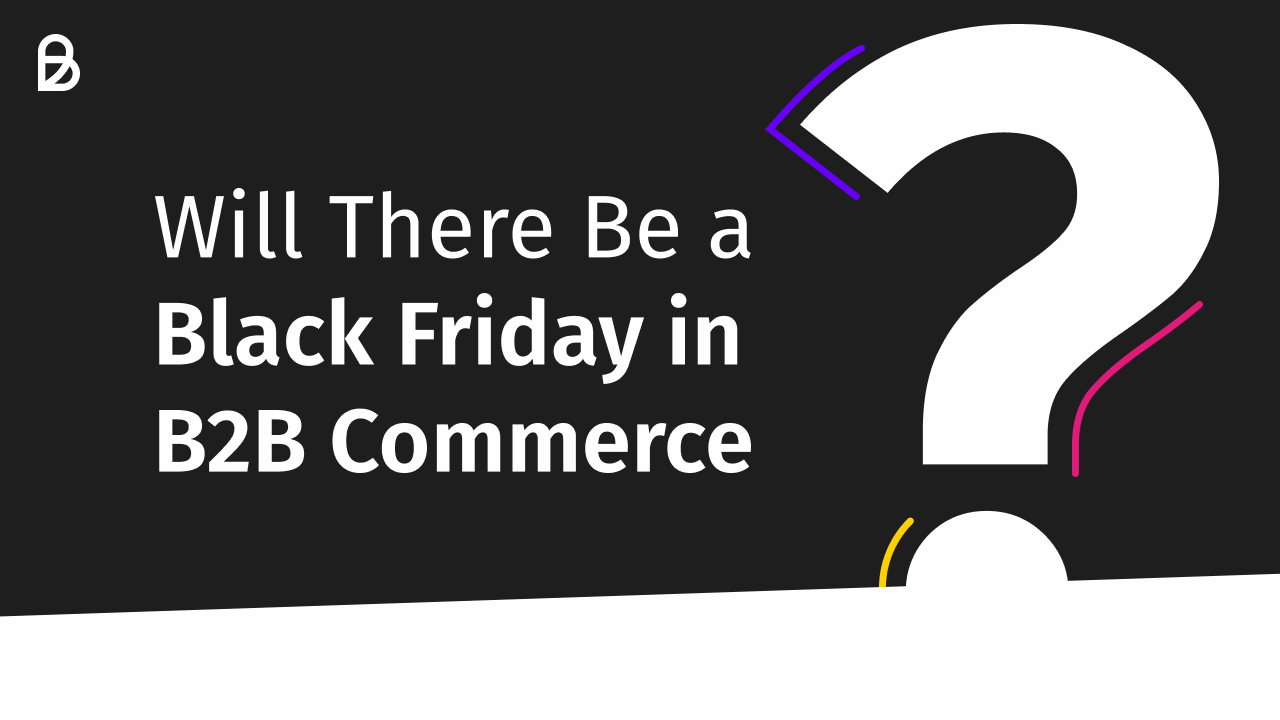Will There Be a Black Friday in B2B Commerce?
Every fall, we see the same topic dominating the news cycle in e-commerce media: Black Friday. More recently, an increasing number of experts have started discussing the importance of Black Friday for the business-to-business market. In his article, Damien Perillat, CCO at Billie, examines the truth behind this claim and explains why he thinks the conversation is heading in the wrong direction.

Every year around this time, we again see the same topic dominating the news cycle on LinkedIn, in e-commerce industry outlets and other media: Black Friday. Accompanied by a cascade of (somehow marketing-heavy) posts and articles, one of the top-selling days in Western retail has reliably become quite the headline each year. More recently, I've also been reading more and more pieces that claim the importance of Black Friday for the business-to-business market, along the lines of: ‘Here's how B2B retailers can benefit from Black Friday and Cyber Monday’. I must confess that I find a lot of these pieces somehow confusing. Not because I think that practical tips for B2B merchants are out of place or that one of the strongest selling days in consumer retail cannot have a significant impact for the B2B market. Rather, I'm convinced that the focus of the discussion should be more on the secular trends shaping B2B commerce. But let's start from the beginning.
Black Friday in B2B Commerce – What's the Story?
First, let's take a closer look at the truth behind the claim that Black Friday has a significant impact on B2B commerce. The data—to be fair—is quite limited so far. One source in Europe is a report by Berlin-based market research company Hopp, which conducted a survey of 100 German B2B online retailers in 2018. The results indicate that 70 percent of the participants were able to attract new customers through discount promotions. 75 percent of the companies were able to significantly increase their sales, and around one-third of the retailers also saw Black Friday as an opportunity to reach customers who cannot be reached through other marketing channels.
As anecdotal evidence, I can also add that I have been noticing an increasing number of companies with a B2B audience offering Black Friday deals in recent years. To give two examples, Amazon Business is currently advertising deals up to 50 percent off orders and B2B marketplace Orderchamp states it achieved an average margin increase of 25 percent with over 500 brands participating in their 2020 Black Friday campaign.
While it may be too early to make a final judgment on the relevance of Black Friday for B2B commerce as a whole, I believe there is enough evidence to suggest that the day could indeed become a big seasonal revenue driver. Firstly, we have been observing for years how many trends from B2C spill over into B2B business. Admittedly with some delay, but eventually nonetheless. Keeping this in mind, it does seem reasonable to assume that business customers—influenced by their buying behaviors as consumers—will soon develop the expectation of being offered special B2B offers on Black Friday and the like as well. Secondly, when we talk about Black Friday, we are talking about a seasonal campaign that drives a large extent of consumer online spending. Considering B2B commerce is a category which to this day lags behind B2C in terms of digitization, I believe that Black Friday could hold great potential to further accelerate the rise of B2B digital commerce. And this brings me to what I believe should be the central point of the whole conversation.
It's All About the Digitization of B2B Commerce
Rigid payment processes, customer journeys riddled with cumbersome manual steps, long delivery times—let’s face it: The state of digitization in B2B commerce is not yet where we would like it to be. At the same time, the way people do their shopping in their personal lives has changed rapidly in the past few years. And with these new habits come new expectations regarding business purchases as well. According to the ‘2021 B2B Buyer Report’ by consulting firm Avionos, 90 percent of B2B buyers would switch to a competitor if a retailer's online store didn't meet their needs. Data like this shows: B2B merchants who don’t focus on digitizing properly might be able to squeeze out a few more good years, but time is slowly but surely running out—driven by consumer market developments. And that's exactly why I find the B2B Black Friday discussion somehow misguided. We shouldn’t be only talking about how to drive demand on seasonal promotion days with the help of special offers, we should be talking about how we can ultimately accelerate the digitization of B2B commerce to meet the growing demand for B2C-like and state-of-the-art customer experiences. Because one thing is for certain: If we do this, every day in B2B can be a Black Friday.